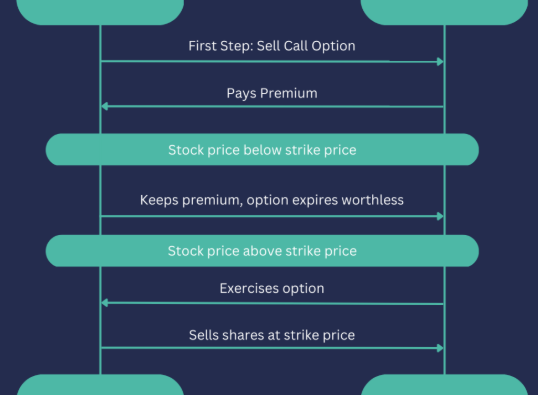
Mutual fund advisors play a pivotal role in the financial planning ecosystem by guiding individuals through their investment journeys. With the mutual fund industry expanding rapidly in India, becoming a certified advisor offers a promising career path filled with growth potential, flexibility, and the opportunity to make a meaningful impact on people’s financial well-being.
Here’s a detailed breakdown of how you can become a mutual fund advisor in India in 2024.
Who Is a Mutual Fund Advisor?
A mutual fund advisor is a financial professional responsible for helping clients choose suitable mutual fund investments based on their goals, risk appetite, and financial circumstances. These advisors understand different fund categories, market behavior, and portfolio allocation strategies, making them valuable partners for investors seeking long-term financial growth.
What Does a Mutual Fund Advisor Do?
Mutual fund advisors handle several important responsibilities:
- Evaluating Client Portfolios: Understanding a client’s financial goals, investment timeline, and risk preferences to assess the current state of their portfolio.
- Recommending Funds: Suggesting mutual funds that align with the client’s objectives and financial profile.
- Financial Planning: Designing holistic plans to meet long-term goals like retirement, education, or wealth accumulation through diversified mutual fund investments.
- Monitoring and Review: Regularly tracking investment performance and rebalancing portfolios based on changing conditions or goals.
- Risk Management: Advising clients on suitable levels of exposure based on age, income, and other factors.
- Tax Strategy: Identifying funds that offer tax benefits and helping manage tax liabilities.
- Retirement Planning: Building investment plans to ensure clients accumulate adequate savings for retirement.
How to Become a Mutual Fund Advisor in India
Step 1: Understand Mutual Funds
Before starting your career, it’s essential to have a solid understanding of mutual fund structures, types, and how they work. Familiarize yourself with fund categories like equity, debt, hybrid, and sectoral funds.
Step 2: Acquire Financial Education
While the minimum educational qualification required is completion of 12th grade, a background in finance, business, or economics is highly advantageous. Pursuing a degree in finance or certifications like CFP (Certified Financial Planner) or CFA (Chartered Financial Analyst) can enhance your credibility.
Step 3: Register for the NISM Certification Exam
To become a licensed mutual fund advisor in India, you must pass the NISM Series V-A: Mutual Fund Distributors Certification Examination. This exam is conducted by the National Institute of Securities Markets (NISM). To register, sign up on the NISM website and pay the examination fee. The test comprises 100 multiple-choice questions, and a score of 50% is required to pass.
Step 4: Pass the NISM Series V-A Exam
Once you clear the NISM exam, you’ll receive a certificate valid for three years. Both soft and hard copies of the certificate are issued to successful candidates.
Step 5: Apply for the AMFI Registration Number (ARN)
After clearing the NISM exam, you must apply for an ARN from the Association of Mutual Funds in India (AMFI). This involves completing a Know Your Distributor (KYD) process and submitting necessary documentation such as PAN card, identity proof, and your NISM certificate.
Step 6: Partner with AMCs or Distributors
Once registered, you can affiliate with asset management companies (AMCs) or become part of a distribution network. This allows you to offer mutual fund schemes to clients and earn commissions based on fund sales.
Step 7: Build Experience
Start by gaining hands-on experience through internships or working under seasoned professionals. Real-time client interactions, portfolio reviews, and advisory work will sharpen your skills and help you build confidence.
Step 8: Grow Your Network
A strong client base and professional network can be instrumental to your success. Attend finance seminars, workshops, and webinars, and use platforms like LinkedIn to connect with peers and potential clients.
Step 9: Maintain High Ethical Standards
Advisors must uphold integrity, transparency, and client-first principles in all interactions. Your reputation is your most valuable asset in this industry.
Skills Required to Excel as a Mutual Fund Advisor
- Financial Acumen: A thorough understanding of markets and investment strategies.
- Analytical Thinking: Ability to evaluate funds and forecast market movements.
- Communication: Explaining complex financial concepts in simple terms.
- Decision-Making: Offering timely and sound advice backed by research.
- Problem-Solving: Addressing client concerns and adjusting strategies effectively.
- Planning and Organization: Creating structured investment plans tailored to individual goals.
Why Choose This Career Path?
- Attractive Earnings: Advisors earn commissions on mutual fund sales, offering high income potential.
- Expanding Market: With growing awareness of mutual funds in India, demand for advisors is on the rise.
- Flexible Work Structure: Many advisors work independently, enjoying control over their time and clientele.
- Fulfilling Work: Helping individuals achieve life goals through sound financial planning is deeply rewarding.
- Remote Work Opportunities: Much of the work can be done online, allowing for location flexibility.
Who Can Become a Mutual Fund Advisor?
Eligibility criteria are straightforward:
- Minimum age: 18 years
- Minimum qualification: 12th pass
- Must clear NISM Series V-A exam
- Registration with AMFI and acquisition of ARN
Professionals in finance—such as accountants, planners, or consultants—as well as students, homemakers, or retirees seeking a flexible career can pursue this path.
Frequently Asked Questions
1. What is AMFI?
AMFI (Association of Mutual Funds in India) regulates mutual fund advisors and promotes investor education and professional standards in the industry.
2. What is NISM?
NISM (National Institute of Securities Markets) is an educational initiative by SEBI that conducts certification exams for roles in the securities market, including mutual fund distributors.
3. Are there career growth options?
Yes, advisors can progress to roles such as portfolio manager, financial consultant, or firm partner, depending on performance and credentials.
4. Can I specialize in certain funds?
Absolutely. You can focus on specific fund types or client segments based on your interests and expertise.
5. Do I need ongoing education?
Yes. Continued professional development is essential to stay updated with market changes and regulations.
Final Thoughts
Becoming a mutual fund advisor in India offers an enriching and financially rewarding career. It requires a mix of formal education, certification, market knowledge, and interpersonal skills. If you’re driven by the desire to help others grow their wealth while building a meaningful career in finance, this role provides a fantastic opportunity.
Take the first step today—whether by preparing for the NISM exam, exploring internship options, or simply expanding your financial literacy. Your journey to becoming a successful mutual fund advisor starts now.









